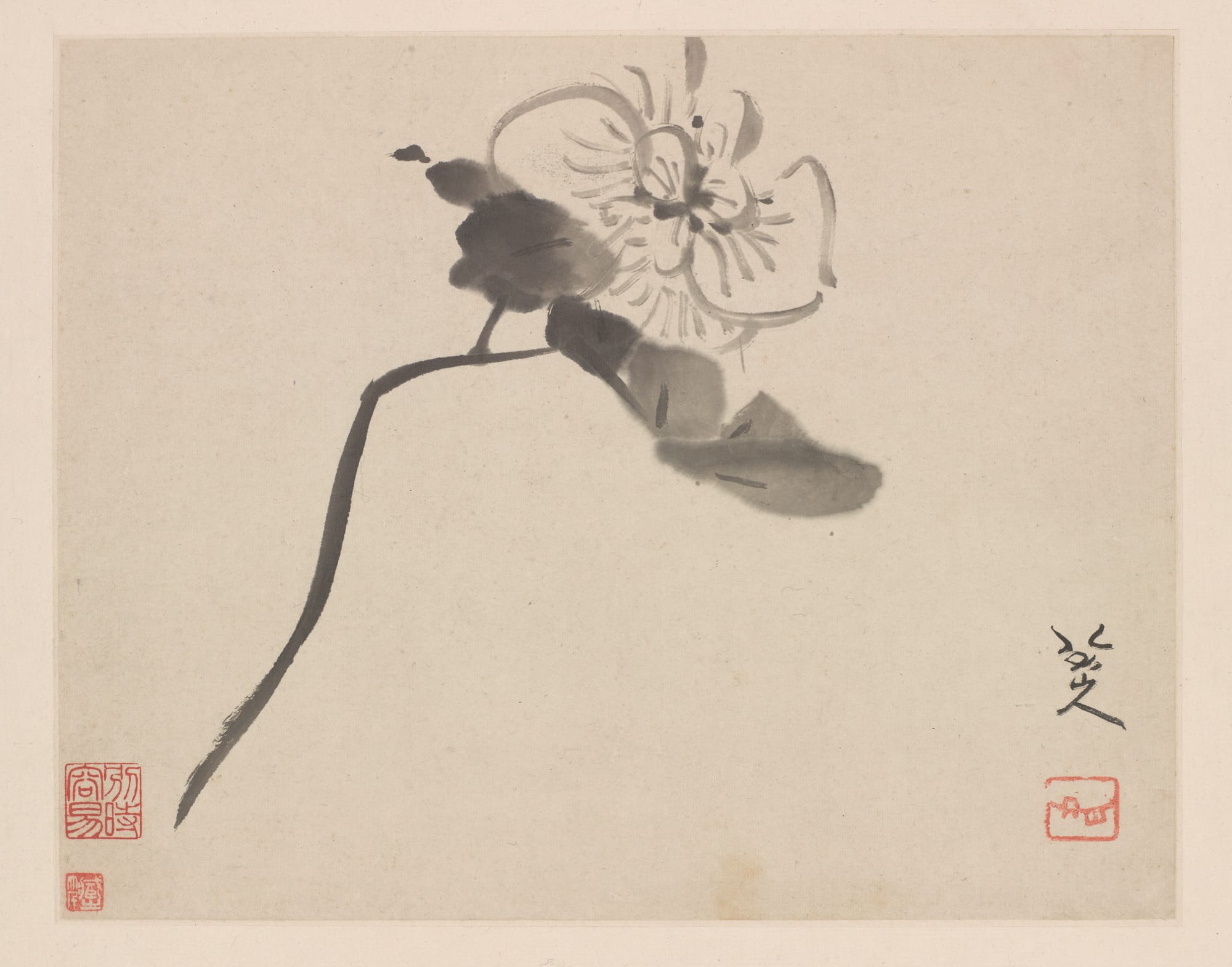I was so busy last week that I haven't posted since I did my HSA proposal last week, but I have been thinking a lot about haiku and also reading lots of poems.
What I wanted to do today was to follow up on the surprising un-Zen argument of Hiroaki Sato; I wrote about that in a previous post reviewing his wonderful book, One Hundred Frogs: From Renga to Haiku to English. Sato makes some very thought-provoking observations about the distance between haiku and Zen, and I think he is certainly right that not all haiku, and not even all classical Japanese haiku, resonate with Zen. At the same time, I think it would be a mistake to discount Zen as heavily as Sato does. After all, Sato is not someone who writes about Zen; he is someone who writes about and translates Japanese literature. If I were to find a devout practitioner of Zen or a Zen scholar who insists that haiku does not resonate with Zen, that would really get my attention... but instead, just the opposite is the case, as many Zen scholars and teachers have emphasized the connections between Zen and haiku.
Which brings me to the topic for today's post: Robert Aitken, one of the great Zen writers on haiku. I was prompted to choose Aitken today because there is a lovely piece by Jim Kacian about Aitkin in the Winter 2025 issue of Frogpond, the journal of the Haiku Society of America; take a moment to read it now. In this brief and lively profile (part of a wonderful collection that Kacian is working on; see future issues of Frogpond for more), we learn something about Aitken's remarkable life as a teacher of Zen Buddhism in the West and — something that I did not know — how Aitken's Zen journey began when he met R.H. Blyth in an internment camp in Kobe. (See previous post on Blyth.) Kacian then shares some thoughts about Aitken's study of Basho, A Zen Wave, a book that you can read at the Internet Archive.
Aitken published Zen Wave in 1978, and he then published another haiku book over 30 years later, in 2011: The River of Heaven: The Haiku of Basho, Buson, Issa, and Shiki (not available at the Archive, alas). Aitken did not live to see the published book; he had just finished the final manuscript when he died in 2010 at the age of 93. Like Zen Wave, River of Heaven contains insightful scholarly commentary, but it also includes some deeply personal observations from Aitken as he faced the end of life. I was especially moved by his occasional references to the sheer difficulty he faced in writing the manuscript because of the effects of Parkinson's. For example, here is his entry on a haiku by Basho:
THE ROSE MALLOWS
kirisame no / sora wo fuyō no / tenki kana
In the misty rain
the rose mallows
make it a fine day.
Yes, Aitken gives titles to the haiku, which I find odd, but that is his style. Here is his commentary:
The rose mallow is a kind of hibiscus. Bashō is saying that it's a day of misty rain but the rose mallows are so brilliantly beautiful that they shine like the sun on a fine day. They are like some women I know who shine like the sun, or like waffles when I'm feeling grouchy in the early morning, or like my beloved haiku, when my Parkinson's disease limits my typing to two fingers that are forever hitting the wrong keys.
And for those of you who like to see the poem in Japanese script (that now includes me!), here it is, with kanji linked to the wiktionary online:
霧雨の 空を芙蓉の 天気 哉
kirisame no sora wo fuyō no tenki kana
The rose mallow or hibiscus is 芙蓉, fuyō. So now I will think of both Basho and Aitken whenever I encounter this Japanese word. Meanwhile, if you are curious, Jane Reichhold offers this more literal translation:
misty rain
the skies of the hibiscus
weather
So, take a look at Zen Wave at the Archive, and if you like that, I am sure you will want to find a copy of River of Heaven to read too! (Lots of used copies via BookFinder.)
And here is a lovely hibiscus from a painting by Bada Shenren; it's dated 1692, which makes it contemporary with Basho's poem.

(Smithsonian Museum of Asian Art, with helpful commentary below the painting down at bottom of page)